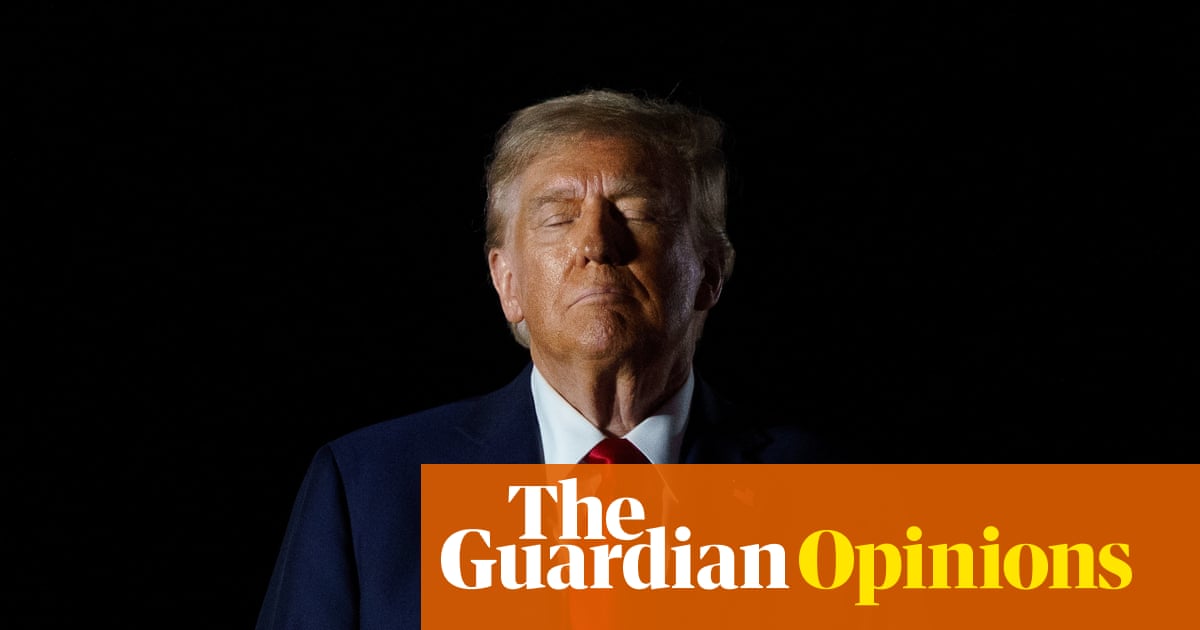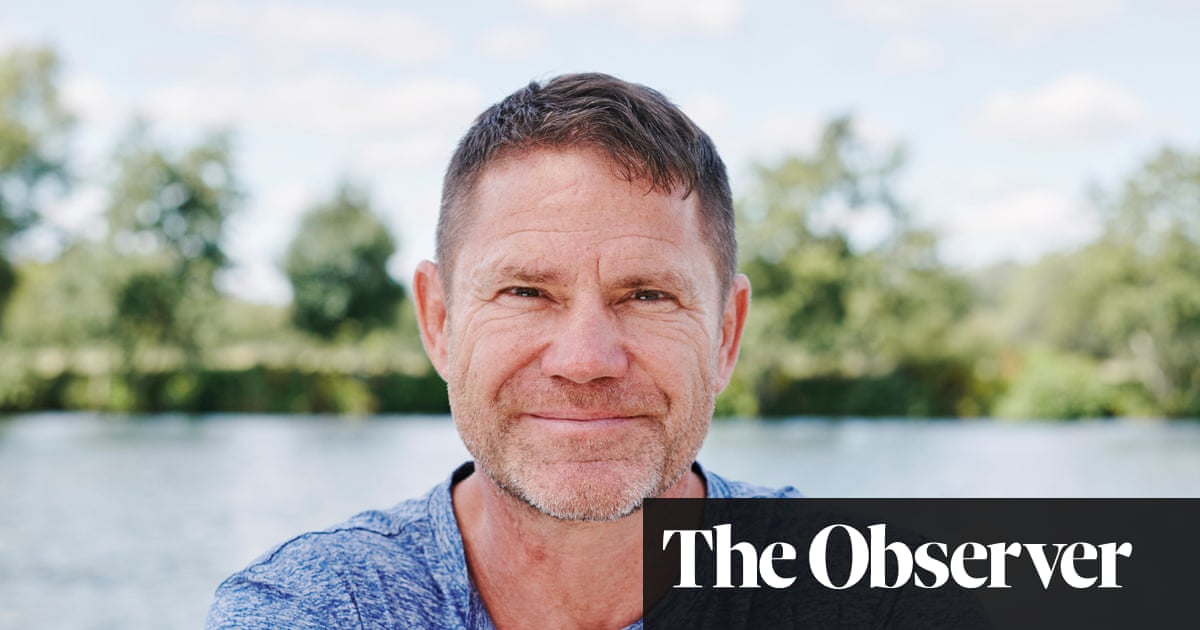If genealogy is destiny, as Donald Trump believes, then âpoison in the bloodâ â a phrase Trump repeatedly uses â determines the fate of nations. By Trumpâs logic, âbloodâ is the true and final measure. Trump, like Hitler, appears to classify people and countries by âbloodâ on a scale of their innate racial characteristics. Those features define the essence of nations, which are themselves delineated on a racial pyramid, with the purest and whitest, the most Aryan, at the pinnacle. True to his doctrine, the Nazis on his family tree must explain his penchant for Hitlerian rhetoric.
âPoison in the bloodâ was the core of Hitlerâs race doctrine as well. Hitler, too, believed it explained the rise and fall of civilizations. âAll great cultures of the past perished only because the originally creative race died out from blood poisoning,â stated Hitler. It is also Trumpâs fundamental trope. âWeâre poisoning the blood of our country, and you have people coming in, think of it, mental institutions all over the world are being emptied out into the United States,â he said on Fox News in March. âJails and prisons are being emptied out into the United States. This is poisoning our country.â
Just recently, on 31 August, addressing Moms For Liberty, a rightwing group devoted to book-banning, he raised again the menace of âpoison in the bloodâ: âBut whatâs happening to our country, our country is being poisoned, poisoned!â
At a rally on 18 September, Trump elaborated: âTheyâre coming from the Congo, theyâre coming from Africa, theyâre coming from the Middle East, theyâre coming from all over the world â Asia! A lot of it coming from Asia ⦠And whatâs happening to our country is weâre just destroying the fabric of life in our country, and weâre not going to take it any longer, and you got to get rid of these people.â
âBlut und Bodenâ â blood and soil â was adopted as an official slogan of the Nazi regime to express its ideal of the nation rooted in the authentic unity of Aryan blood. The community of its people â Volksgemeinschaft â comprised only those of shared ethnic blood. Aliens corrupting the blood, principally Jews, but also Slavs, Poles and Roma, were described as disease carriers and âverminâ â Volksshadlinge â and posed an existential threat. Only those people of the blood belonged to the Heimat, a concept the Nazis cast as the racially pure home, intrinsic to Blut und Boden.
Jews were Heimatlos â a people separate from the Heimat, without a true home, wanderers, cosmopolitans and globalists, a menace to the sanctity of the culture and the identity of the nation. They were not simply outsiders, or the Other. They were a different species â subhumans, Untermenschen â and must be eradicated to preserve the blood of the race. âAlthough it has features similar to a human, the subhuman is lower on the spiritual and psychological scale than any animal,â instructed a pamphlet entitled Der Untermenschen, illustrated with distorted photographs of these lower beings to depict the âbestialâ nature of the subhuman Jews and Slavs. Four million copies were published in 1942 under the direction of Heinrich Himmler, the head of the SS.
âIn some cases, theyâre not people, in my opinion,â Trump said this March. âBut Iâm not allowed to say that because the radical left says thatâs a terrible thing to say. These are animals, OK, and we have to stop it.â When they are removed, it will be, says Trump, âa bloody storyâ.
Friedrich Trump, Trumpâs grandfather, was deported from his native Bavaria as an undesirable and had his German citizenship revoked in 1905. Born in the town of Kallstadt in 1869, he dodged compulsory military service and emigrated to the United States in 1885. In and around Seattle and the Yukon, he owned restaurants and hotels that also did a brisk business as brothels. He returned to Germany a well-to-do man, married Elisabeth Christ, and took her to New York. But his wife did not like America and was homesick.
He returned to Kallstadt to settle, but the authorities investigated him and ruled he should be banished for dodging military service. He wrote the Prince of Bavaria a letter begging to stay. âWhy should we be deported? This is very, very hard for a family.â His plea was rejected. He was expelled. Upon his return to New York, in October 1905, a son, named Fred, was born. The Trump family saga began.
The Trump and Christ families, with the exception of Friedrich and Elisabeth Trump, remained in Kallstadt. Many of them served in the Nazi army. Some were members of the Nazi Party. Two of these relatives of Donald Trump are now known to have fought and died for Hitler. It appears that they were involved in the early stage of the Holocaust. (The research of a certified professional genealogist distinguished in the field discovered these Trump Nazi soldiers, but prefers to remain anonymous to avoid retribution.)
Ernst Christ, of the Christ branch of the family, a first cousin once removed of Donald Trump, the son of his great-uncle Johannes Christ, born in Kallstadt, was a Nazi. Unteroffizier Christ, a corporal, served in the 1st Company of the Panzerjager-Abteilung 670, an anti-tank unit that saw action on the western front in Belgium and France before being transferred to participate in the invasion of Russia.
In July 1942, Christâs company occupied the town of Polodovitoye, about 100 kilometers south of Stalingrad. The Nazi soldiers rounded up about 100 Jewish families who had fled there from throughout the region. According to Yad Vashem, the Holocaust research center in Jerusalem, âJews were loaded onto trucks, supposedly to be taken home. In fact, the victims were taken outside the village toward a ravine located 50 meters south of the village. There the victims were shot or probably severely wounded and then doused with some highly flammable liquid and then set on fire.â A month later, on 13 August, Unteroffizier Christ was killed in battle.
Three days before, on 10 August, the Wehrmacht reached the outskirts of Stalingrad. On that day, Private Eduard Freund, born in Kallstadt, was killed. He was the first cousin once removed of Donald Trump, the son of Donaldâs great aunt Elisabetha Trump and Karl Phillip Freund. Private Freund served in a security unit, the fourth company of the Sicherungs-Battalion 790, whose task of guarding supply lines and police work quickly turned, like that of all such units, into the operation of wholesale brutal terror. He was one of those soldiers from âall walks of lifeâ described in historian Christopher Browningâs Ordinary Men, who found themselves occupiers in eastern Europe to execute the regimeâs policies, often under the control of the SS, where âmass murder and routine had become oneâ, murdering partisans and civilians alike, and systematically killing Jews. The policy was justified in a phrase â Jude gleich Bolschewik gleich Partisan, or âJew equals Bolshevik equals Partisanâ.
If âbloodâ is the biological marker of indelible personal, racial and ethnic character, by his own reasoning Trumpâs organic linkage to Nazis must inexorably explain his unapologetic Hitlerian politics. On Fox News, in March, Howard Kurtz, the host of its show Media Buzz, interviewed Trump. âWhy do you use words like âverminâ and âpoisoning of the bloodâ?â he asked. âThe press, as you know, immediately reacts to that by saying, âWell, thatâs the kind of language that Hitler and Mussolini used.ââ To which Trump replied, âBecause our country is being poisoned.â
But another Trump relative stands as a repudiation of Trumpâs theory. John G Trump, Fredâs younger brother, did not go into real estate. Instead, he earned a masterâs degree in physics and a doctorate in electrical engineering. He became a co-inventor of high-voltage electrostatic generators, which during the second world war he applied to advancements in radar. He served as the secretary of the microwave committee created by the federal governmentâs new National Defense Research Committee. After the war, he was appointed director of MITâs High-Voltage Research Laboratory, whose work he used in cancer research and on environmental pollution.
His obituary in Physics Today in 1985 by a colleague paid tribute to his personal virtues as well as his scientific contributions: âTrumpâs remarkable personality mix contributed to all of this achievement and success. He was remarkably even-tempered, with kindness and consideration to all, never threatening or arrogant in manner, even when under high stress. He was outwardly and in appearance the mildest of men, with a convincing persuasiveness, carefully marshaling all his facts.â Furthermore, wrote his eulogist, âHe cared very little for money and the trappings of money.â
In other words, John Trump was nothing at all like his bullying, ignorant and greedy nephew, who bears the middle name âJohnâ, the only apparent correspondence between them. The resemblance, regardless of genetics, is nil. Yet Trump cites him as proof of his intelligence, a case positive of âbloodâ. âI had an uncle who went to MIT who is a top professor. Dr John Trump. A genius,â Trump said in an interview with CNN in 2015. âItâs in my blood. Iâm smart. Great marks. Like really smart.â From time to time, he brings up his uncle as his forebear of his own âgeniusâ. âGood genes, very good genes. OK, very smart.â
Through his distorted lens, Trumpâs uncle, who was the opposite of a narcissist, serves as a rationale for his narcissism. He is held up as an example of Trumpâs âbloodâ mania, though the scientist in the family had no use for the sort of malevolent superstition the Nazis propagated and his nephew mimics.
Trump designates his blood as superior and the blood of those he chooses to demonize as inferior. âWell, I think I was born with a drive for success,â Trump told CNN in 2010. âIâm a gene believer. Hey, when you connect two racehorses, you usually end up with a fast horse. And I really was â you know, I had a â a good gene pool from the standpoint of that.â
âI have an Ivy League education, smart guy, good genes. I have great genes and all that stuff, which Iâm a believer in,â Trump informed a crowd in Biloxi, Mississippi, in 2016. He had recently called for a ban on all Muslims entering the United States.
âYou have good genes, you know that, right?â Trump told another nearly all-white rally during his 2020 campaign in a Minnesota town that had voted against accepting refugees. âYou have good genes. A lot of it is about the genes, isnât it, donât you believe? The racehorse theory. You think weâre so different? You have good genes in Minnesota.â He compared and contrasted. âEvery family in Minnesota needs to know about sleepy Joe Bidenâs extreme plan to flood your state with an influx of refugees from Somalia, from other places all over the planet.â
âWhy do we want all these people from shithole countries coming here?â Trump bemoaned in a White House meeting in 2018. He pointed to Haiti â âtake them outâ â El Salvador, and the entire continent of Africa. âWe should have more people from Norway.â
This April, at a fundraiser with donors at Mar-a-Lago, Trump proudly recalled his âshithole countriesâ moment to elaborate on his categories of acceptable and unacceptable immigrants. âAnd when I said, you know, âWhy canât we allow people to come in from nice countries,â Iâm trying to be nice. Nice countries, you know like Denmark, Switzerland? Do we have any people coming in from Denmark? How about Switzerland? How about Norway?â
Trump claims he has not read Mein Kampf. His first wife, Ivana Trump, said he âreads a book of Hitlerâs collected speeches, My New Order, which he keeps in a cabinet by his bedâ, Vanity Fair reported in 1990. Trump explained it was a gift from a Jewish friend. Then, he told Marie Brenner of Vanity Fair, âIf I had these speeches, and I am not saying that I do, I would never read them.â
As Trump ginned up his third campaign, Hugh Hewitt, a rightwing radio talk show host, tried to help cleanse Trump of taint from his âpoison in the bloodâ incantations. âNow, Mr President,â said the deferential Hewitt, âyour critics say that you are using Hitlerian language that was used to dehumanize Jews by saying that Jewish blood cannot be part of German blood. Do you have anything like that in mind when you say poisoning our blood?â
âNo, and I never knew that Hitler said it, either, by the way,â Trump replied. âAnd I never read Mein Kampf. They said I read Mein Kampf. These are people that are disinformation, horrible people that weâre dealing with. I never read Mein Kampf.â
Asked again by Hewitt, Trump answered, âFirst of all, I know nothing about Hitler. Iâm not a student of Hitler. I never read his works. They say that he said something about blood. He didnât say it the way I said it, either, by the way.â Then, after showing he was familiar with Hitlerâs âbloodâ obsession that he had just said he did not know about, he repeated his âpoisonâ meme eight times.
âI know nothingâ was the comic punchline of Sergeant Schultz, the buffoonish Nazi prisoner-of-war camp guard from the 1960s television series Hoganâs Heroes. âI know nothingâ has been a useful if transparently false tactic of deflection for Trump, from David Duke â âI donât know anything about David Duke, OK?â â to the Proud Boys.
After the violent neo-Nazi march in Charlottesville in 2017, ringing with chants of âJews will not replace us,â attended by a number of Proud Boys, Trump infamously stated, âThere are fine people on both sides.â
When Chris Wallace, the moderator of the 2020 CNN presidential debate, asked Trump if he would denounce white supremacists, he replied, âProud Boys, stand back and stand by,â a message to the neo-fascist paramilitary group that would be the shock troops in the attack on the Capitol on January 6. After the debate, he told reporters, âI donât know who the Proud Boys are.â Now, he has pledged to pardon those Proud Boys and others serving prison terms for their actions in the insurrection of January 6. He refers to them as âhostagesâ.
White supremacists, neo-fascists and neo-Nazis attach themselves to Trump, sometimes appearing as more than a fringe â including, recently, the self-proclaimed âBlack Naziâ Mark Robinson, the Republican candidate for governor of North Carolina, whom Trump called âMartin Luther King on steroids.â
Neo-Nazis just seem to pop up weirdly on Trumpâs property. At Mar-a-Lago, on 22 November 2022, Trump had a night to remember: dinner with the anti-Semitic rapper Kanye West, aka Ye, and Nick Fuentes, a neo-Nazi, who was a leader at the Charlottesville march and riot, present in the mob on January 6, and has built an antisemitic following he calls the âGroypersâ. Afterward, when the press reported on the dinner, Trump issued a statement that Ye brought âa guest whom I had never met and knew nothing aboutâ.
Trumpâs footsie with Nazis mingles narcissism with Nazism. But it is his belief in the far-right âreplacement theoryâ, which is the central idea of his campaign, that provides the greatest illumination on what are more than overlapping coincidences. The historical lineage of poisonous ideas, rather than âpoison in the bloodâ, explains Trumpâs doctrine of a master race, whether Trump is aware or not of the origins of his venom.
Trumpâs embrace of the replacement theory may owe a good deal to its relentless promotion by its chief exponent, Tucker Carlson, who also serves as an intellectual mentor to JD Vance. On more than 400 shows when Carlson was on Fox News, according to the New York Times, âhe has amplified the idea that a cabal of elites want to force demographic change through immigrationâ.
On his 2 September podcast, Carlson interviewed a self-proclaimed ânon-racist fascistâ, Darryl Cooper, whom he introduced as âthe best and most honest popular historian in the United Statesâ. For two hours, he held forth on Winston Churchill as the âchief villain of the Second World Warâ and the Holocaust as an accident forced on Hitler. Despite Carlsonâs Nazi fascination, his principal influence has been as a recent popularizer of a doctrine developed more than a century ago.
Trumpâs replacement theory is derivative of the nativism of eugenicists and ârace scientistsâ, especially Madison Grant, whose 1916 book, The Passing of the Great Race, warned against âthe old stock being crowded outâ by âswarms of Polish Jewsâ and other aliens, who were pushing aside âthe Nordic manâ, and fostering âsuicidal ethics which are exterminating his own raceâ.
Grant served as an adviser to the congressional members who wrote the Immigration Act of 1924, which severely restricted immigration of those ethnic groups from eastern and southern Europe that he deemed inferior, closing out Italians and Jews. He also helped write laws in the south banning interracial marriage.
Hitler regarded Grantâs book in his speeches as scientific proof and wrote him an admiring letter telling him it was his âBibleâ. âIt was America, in spite of its enormous territory, that was the first country to teach us by its immigration law that a nation should not open its doors equally to all races,â Hitler told the New York Times in an interview on 20 December 1931, before he seized power. âLet China be for the Chinese, America for the Americans and Germany for the Germans.â In 1936 the Nazis promoted The Passing of the Great Race as essential reading for Germans.
âThe irony is that by putting Madison Grantâs theories into practice, the Nazis discredited those theories forever,â wrote the historian Jonathan Spiro in his biography of Madison Grant, Defending the Master Race.
That is, until Trump.
When Trump says immigration, he means race. When he says crime, he means race. When he says communism, socialism, or Democrat, he means race. When he says America is declining, he means race. When he says âAmerican Firstâ, he means race. When he says blood, he means race. When he says poison, he means race.
When he says race, he means Black people. When he says race, he means Hispanics. When he says race, he means Muslims. And when he says race, he means other white people, too, some less white, less pure, less clean, less acceptable depending on their ancestral origin, than others. When he says race, he means the replacement theory.
Trump has Hitler on the brain in unknowable ways until he lets his admiration seep out. âWell, but Hitler did some good things,â Trump remarked to his White House chief of staff, General John Kelly. âWell, what?â asked Kelly. âWell, [Hitler] rebuilt the economy,â Trump replied. Kelly was outraged. He told him, âSir, you can never say anything good about the guy. Nothing.â Kelly reflected, âItâs pretty hard to believe he missed the Holocaust, though, and pretty hard to understand how he missed the 400,000 American GIs that were killed in the European theater,â Kelly told Jim Sciutto, the CNN correspondent. âBut I think itâs more, again, the tough guy thingâ â Trumpâs insatiable need to playact.
On 17 September, Trump launched a new theme with an old echo. He made a prophecy about who should be blamed if he is defeated in the election. âIâm not going to call this as a prediction, but in my opinion, the Jewish people would have a lot to do with a loss,â he said. Then, he repeated, âIf I donât win this election â and the Jewish people would really have a lot to do with that if that happens because if 40%, I mean, 60% of the people are voting for the enemyâ¦â He complained that as âthe most popular person in Israelâ he was not âtreated rightâ by American Jews.
Trumpâs Jewish son-in-law Jared Kushner, his converted Jewish daughter Ivanka, his Jewish grandchildren, his Jewish adviser Stephen Miller, who is poised to be the implementer of the replacement theory and deportation of millions, including legal immigrants, and his Jewish supporters and donors are exempt from his condemnation of âthe Jewish peopleâ. Trumpâs family ties donât give him pause from his obsession. His âbloodâ makes them kosher. In the case of an inconvenient contradiction his narcissism prevails.
Trumpâs blame game is his version of the Dolchstosslegende â the stab in the back legend â that Germany did not lose the first world war in battle but was betrayed on the home front by Jews and leftists. Hitler traced his political awakening to his understanding of the Dolchstoss.
Now, after all Trump has done for the Jews, after all he has done for Israel, âthe Jewish peopleâ are ungrateful. Too many of them support âthe enemyâ. Trump is warming up his myth of a scapegoat.



